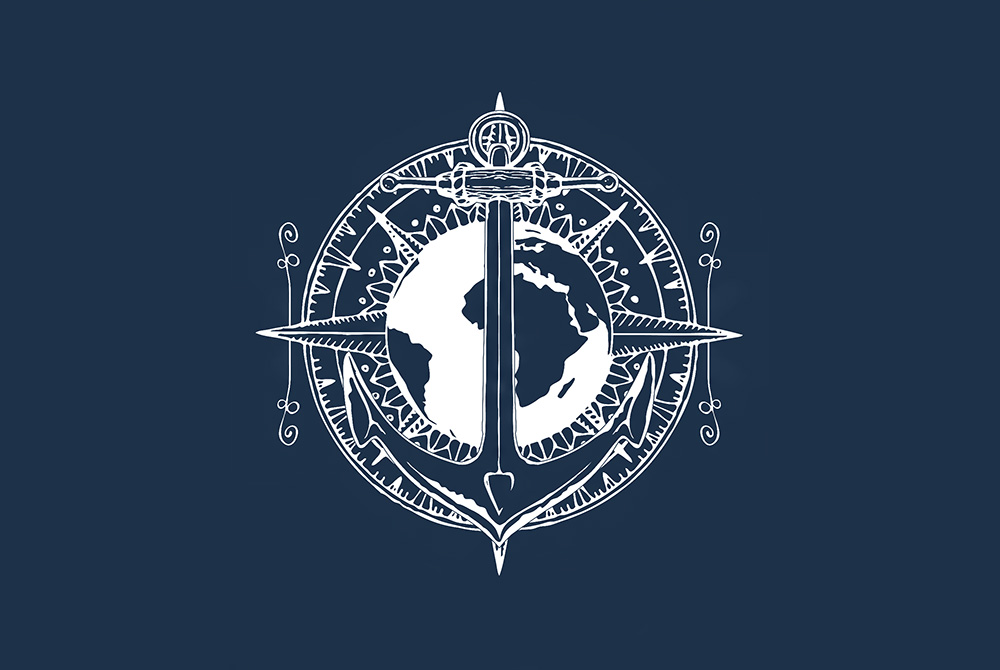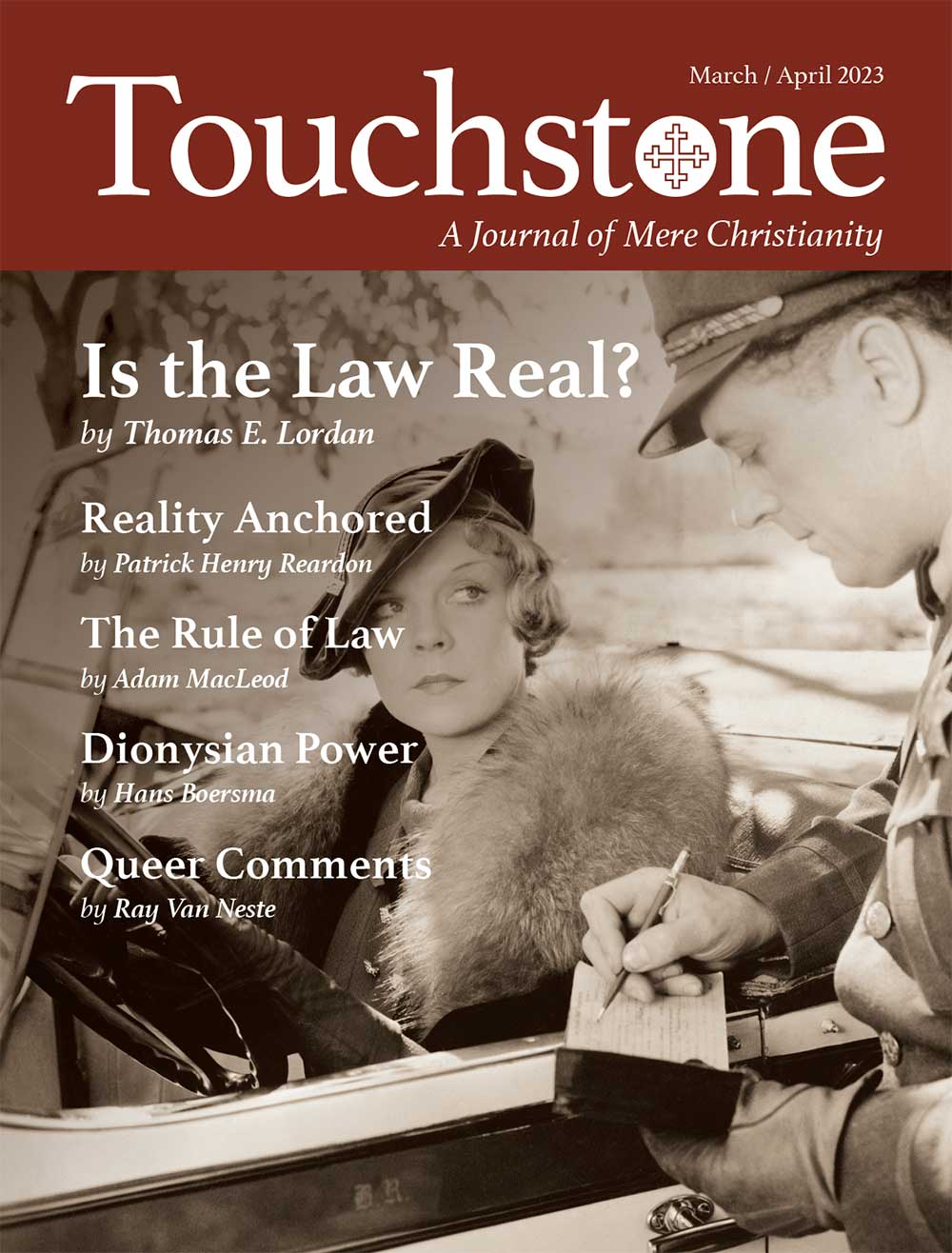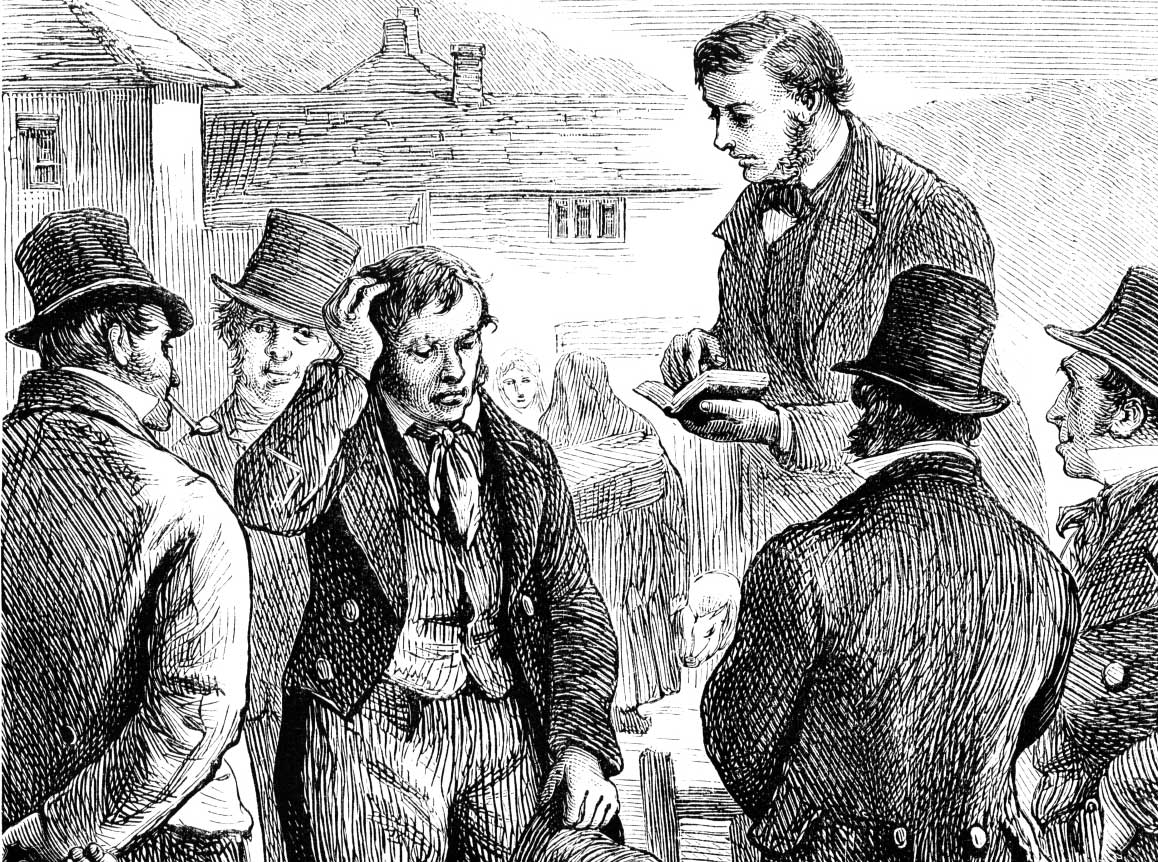Cosmic Anchor
The Reality of Divine Law
Among the philosophical questions commonly raised on the deck of the Pequod, arguably the most significant comes in a discussion between Stubb and Flask on the subject of anchors. In the course of it, Stubb inquires, “I wonder, Flask, if the world is anchored anywhere; if she is, she swings with an uncommon long cable, though.”
In 1851, the year that Melville launched the maiden-voyage of the Pequod, Stubb was hardly alone in his concern about the anchoring of reality. The universe, it must have seemed to many, was coming undone. Not long after the Enlightenment moved from Theism (“Yes, we’re attached to an anchor”) to Deism (“Well, yes, there is an anchor, but we’re not attached to it”), many notable thinkers began to take the next —and, I think, more logical —step into Atheism (“Look, if you can’t see the anchor, it’s not there”). This was the age of Feuerbach and Schopenhauer, of Bruno Bauer and Mikhail Bakunin.
It was also the age of Karl Marx. In October of 1851, as the first copies of Melville’s whale story were rolling off the press at 8 New Burlington Street in London, Karl Marx was busy gathering notes for the Eighteenth Brumaire in his home at 28 Dean Street, less than a mile away.
Marx was one of those speculators most responsible for disassociating the human windlass from the divine anchor.
An important aspect of man’s disassociation from God, Thomas Lordan explains in these pages, was the separation of human laws from “the law,” a transcendent “reality” (res) that can only derive from on high.
God and “the law,” Lordan argues, are logically inseparable. He writes,
It is only in the last couple of hundred years or so that legal philosophy has called the existence of “the law” into serious doubt, and this has occurred, not coincidentally, concurrently with modernity’s doubts about the existence of God. In many of our universities and law schools today, students will not hear about “the law,” unless it is to hear that such a thing does not exist.
Law & Wisdom
Instructed by Lordan’s article (and the contributions of Hans Boersma, Marcus Johnson, Adam MacLeod, and Ray Van Neste), let me further reflect that a related loss in modern thought is the very notion of legal wisdom.
“The law,” in which all our laws should find their validity, is not simply a projection of God’s will, but also an expression of his wisdom. For the Christian, God’s law is rooted —as are all created things —in the Logos. What God commands is not only to be obeyed; it is to be studied, pursued, and understood with a devout mind. The wise man prays, Da mihi intellectum, ut sciam testimonia tua —“Grant me understanding, that I may grasp thy testimonies.”
This is why, as Lordan demonstrates, the detachment of our laws from “the law” eventually leads to the idea of law only as an expression of power (most obvious, I think, in Hobbes). In the practical application and interpretation of law, there remains no logical place for wise decisions, if the laws themselves do not embody some prior relationship to the all-embracing Wisdom that “reacheth from end to end mightily and ordereth all things sweetly.”
I believe this is why the Bible’s young philosopher-king, as he assumed the throne of his father, first prayed, “Give therefore thy servant an understanding heart to judge thy people, that I may discern between good and bad: for who is able to judge this thy so great a people?”
Nor does legal wisdom come simply from an informed familiarity with the law. As Adam MacLeod correctly argues in these pages, certain philosophical concepts underlie all forensics. He rightly insists that any law to which human beings are subject presupposes at least some idea of what a human being is. Accordingly, MacLeod places the idea of human law within the far larger framework of anthropology. Certain points about humanity itself, that is to say, must be settled beforehand and out of court.
Matters More Essential & Basic
For my part, I suggest that we do well to commence our thoughts about law, not inside the courtroom but outside, perhaps on the front steps of the courthouse. Indeed, I have a particular place in mind; it is that marble portico (stoa) where a man named Euthyphro, in 399 BC, initiated a long discussion with Socrates by remarking on the novelty (ti neoteron) of encountering the philosopher in such a location.
Both men, we recall, have cases pending before the bar.
Socrates has been subpoenaed to answer a series of charges, including impiety (asebes); Euthyphro, for his part, has come to bring a charge against another person. As both men have arrived early, they fall into a somewhat lengthy discussion, prompted by the content of the two cases. Plato, the author of this account, uses their discussion to explore certain themes that will arise in the course of Socrates’ trial.
Plato, that is to say, prior to a testing of the law in the courtroom, uses this pre-trial discussion to probe matters more fundamental than the law. Chief among these, understandably, is justice (dikaion); Socrates in particular is eager to know what is meant by justice. And also —in a question less frequently posed in our own day —what is meant by holiness (to hosion).
Even prior to those high pursuits, nonetheless, another matter is deemed to be more essential and basic: man’s place in the world as a social and moral being. This concern is introduced when Socrates learns that Euthyphro is about to bring criminal charges against his own father. This is the initial and ironical point that pricks the great Athenian’s philosophical mind: “Your [father], my good man?” (ho sos, o beltiste).
Socrates does not disguise his shock. How can Euthyphro bring himself to do this? Surely the accuser must justify what he has in mind. Isn’t this an example of impiety (asebes)?
Euthyphro takes up the challenge:
Piety (eusebes) is doing as I am doing; that is to say, prosecuting anyone who is guilty of murder, sacrilege, or of any similar crime —whether he is your father or mother, or whoever he may be —that makes no difference; and not to prosecute them is impiety (asebes).
Socrates, apparently flexing his mind to prepare for his own defense, poses to Euthyphro a series of questions that lead to the latter’s impatient confusion. It soon becomes obvious that Socrates’ interlocutor has no idea what he is talking about.
A Fundamental Covenant & Code
I believe that the shocked question of Socrates is the key to understanding this discussion: “Your [father], my good man?” (ho sos, o beltiste). The theories of Euthyphro are shallow, misleading, and easily dismissed, because they are detached from that root embodied in the man’s filial relationship to his father. That is to say, Socrates, invoking the parentage of Euthyphro, summons the mind to consider a deeper, more essential memory, the prior reality of what a human being is.
I am happy and privileged to introduce this present edition of Touchstone, which is dedicated to the theme of law. I do this in the conviction that the law does exist, and that the pursuit of it is an expression of the mind’s fundamental contract with reality. This moral concern of those created in God’s image is not only more fundamental than the law; it is more vital, in the etymological sense of having to do with life.
Man’s literal affiliation to nature and history, rooted in his creation and prior to any rule that governs it, is a supposition of legal philosophy itself. It imposes on all human beings a most fundamental covenant and code of obligations, expressed by Plato in the term eusebes and known to Cicero as pietas, both words commonly translated as “piety.”
In our concern for piety, I suggest a return, once more, to the image of the anchor, if only to remark that an anchor does what it is supposed to do —hold us steady and in place —only when we don’t see it.
Patrick Henry Reardon is pastor emeritus of All Saints Antiochian Orthodox Church in Chicago, Illinois, and the author of numerous books, including, most recently, Out of Step with God: Orthodox Christian Reflections on the Book of Numbers (Ancient Faith Publishing, 2019).
subscription options
Order
Print/Online Subscription

Get six issues (one year) of Touchstone PLUS full online access including pdf downloads for only $39.95. That's only $3.34 per month!
Order
Online Only
Subscription

Get a one-year full-access subscription to the Touchstone online archives for only $19.95. That's only $1.66 per month!
bulk subscriptions
Order Touchstone subscriptions in bulk and save $10 per sub! Each subscription includes 6 issues of Touchstone plus full online access to touchstonemag.com—including archives, videos, and pdf downloads of recent issues for only $29.95 each! Great for churches or study groups.
Transactions will be processed on a secure server.
more on law from the online archives

37.5—Sept/Oct 2024
Why Law Schools Can't Teach Law
A sidebar to How Law Lost Its Way by Adam MacLeod
more from the online archives
calling all readers
Please Donate
"There are magazines worth reading but few worth saving . . . Touchstone is just such a magazine."
—Alice von Hildebrand
"Here we do not concede one square millimeter of territory to falsehood, folly, contemporary sentimentality, or fashion. We speak the truth, and let God be our judge. . . . Touchstone is the one committedly Christian conservative journal."
—Anthony Esolen, Touchstone senior editor











